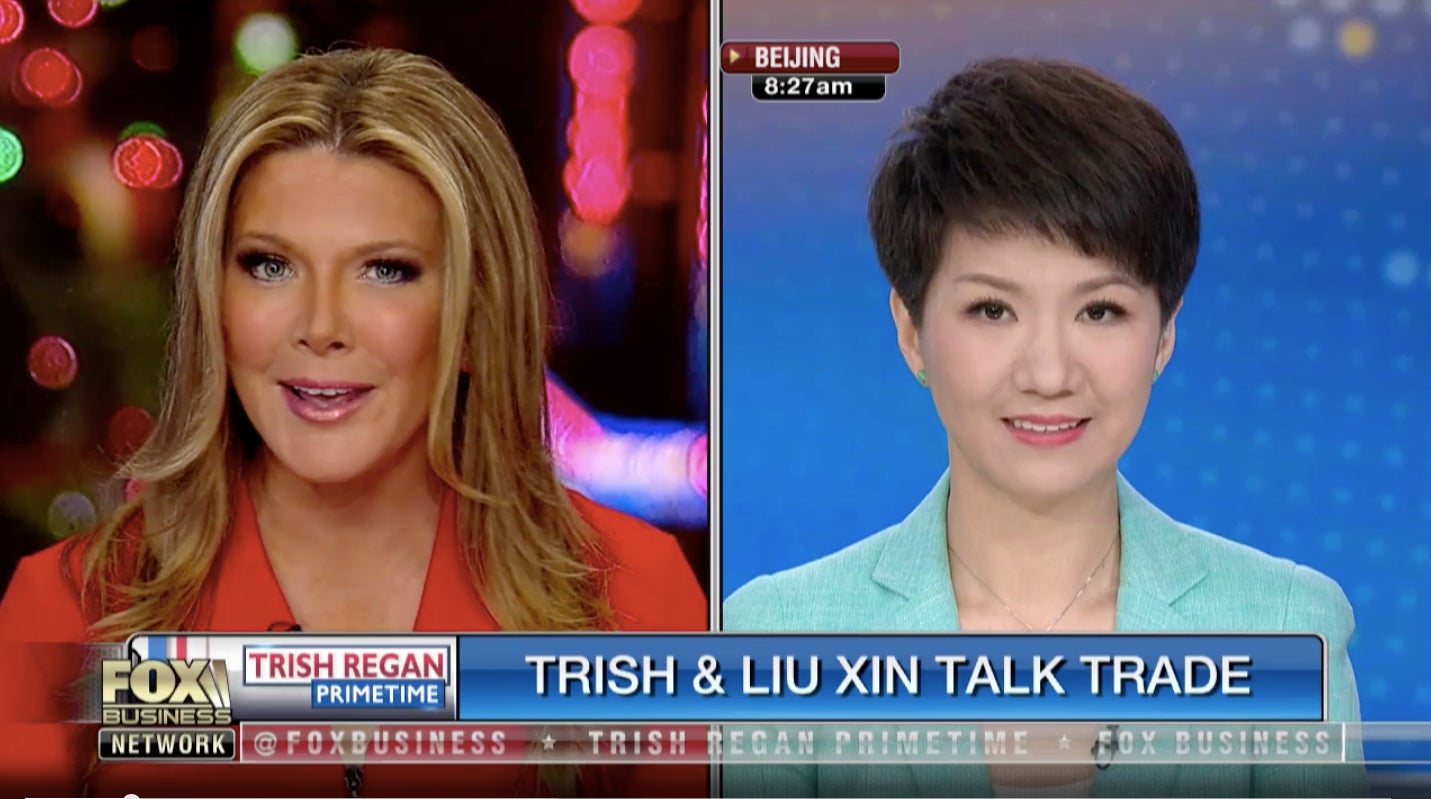The Fox-CCTV trade war “debate” was polite, dull, and condescending
The hype in the run-up to what was billed as a historic debate between a Fox anchor and a presenter from China’s state broadcaster captured the imagination of millions. But what actually transpired in the brief 17-minute encounter, punctuated by lags in the satellite connection, was disappointingly short on substance.


The hype in the run-up to what was billed as a historic debate between a Fox anchor and a presenter from China’s state broadcaster captured the imagination of millions. But what actually transpired in the brief 17-minute encounter, punctuated by lags in the satellite connection, was disappointingly short on substance.
On Wednesday night (Thursday morning in China), Trish Regan, a host on Fox Business Network, chatted with Liu Xin of China Global Television Network, an international arm of the state-owned China Central Television (CCTV), about trade and technology against the backdrop of the escalating US-China trade war.
It was a culmination of days of Twitter-sparring between the two women, but ultimately flopped in an anti-climax that left key questions unanswered. What was supposed to be a proxy for the trade war, fought by representatives of television networks favored by their respective country leaders, ended up going nowhere.
There was no mud-slinging, as Liu had requested as a precondition. But there was condescension and snide from both sides, mixed with boilerplate pleasantries like Regan telling Liu, “I appreciate you being here.”
The debate started with a somewhat testy exchange. Regan had introduced Liu as being “part of the CCP [Chinese Communist Party]—a statement that Liu immediately disputed.
“This is on the record, so please don’t assume that I’m a member and I don’t speak for the Communist party of China,” Liu said. “Here today I’m only speaking for myself, Liu Xin, a journalist working for CGTN.”
CCTV’s live coverage of the debate (it could not stream it in China due to “rights issues“) made sure to call out Regan for appearing to interrupt Liu as she made her clarification. “Within 30 seconds of Liu Xin’s opening, she had already been interrupted by Trish at least three times,” it wrote (link in Chinese).
The conversation continued on cordial terms after that, turning to issues of the trade negotiations (“I don’t have any insider information,” Liu said), intellectual property, tariffs, and technology transfer.
Perhaps the most interesting question Regan posed to Liu was one about the mechanisms behind China’s economy.
“I’m paying you a compliment here,” Regan said. “Your system of economics is very interesting. You have a capitalist system, but it’s state-run. So talk to us about that. How do you define it?”
Liu appeared to be caught off-guard by the question, stalling for time as she repeated the question back at Regan. She eventually described state capitalism with the predictable “socialism with market characteristics,” a riff on a frequently used phrase to describe China’s spin on capitalism.
Online, Chinese social media users on Weibo were dismayed with how abruptly the debate ended. “It finished just like that?” wrote one.
Writing after the debate, CCTV praised Regan (link in Chinese) for dropping her combative, scene-making style in a show of respect to Liu. “But from Trish’s questions, we can see that she still does not fully understand the situation in China, and is still biased on issues of economics and trade,” it added.
In the end, it was not the showdown that many had hoped for. In fact, it seems a stretch to call it a debate, given that it was mostly Regan asking questions about China. Perhaps the two women will have another debate in the days to come. Liu did extend Regan an invitation to visit China.
“If you want to come to China, you’re welcome and I’ll take you around,” she said.